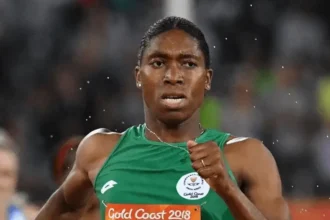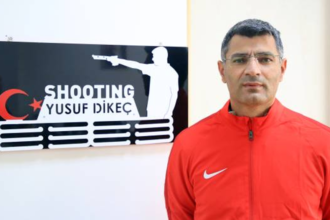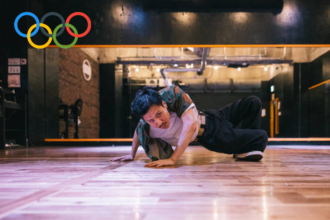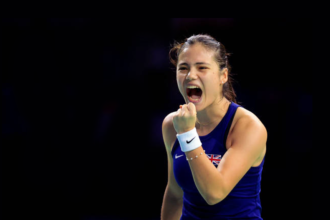By assuming the first female and African presidency of the International Olympic Committee (IOC), Kirsty Coventry has created history. Having won two Olympic gold medals, the 41-year-old former swimmer had a clear triumph in Thursday’s poll, garnering 49 of the 97 total votes in the first round. Juan Antonio Samaranch Jr., her closest rival, got 28 votes; World Athletics leader Lord Coe came third with just eight.
Thomas Bach, who has directed the IOC since 2013, will be replaced by Kirsty Coventry, sports minister for Zimbabwe. On June 23, she will take on her new position as the youngest president in the 130-year legacy of the company. The first Olympics as president will be the Milan-Cortina Winter Games in February 2026.
The Victory Significance of Kirsty Coventry?
After winning, Kirsty Coventry said her candidacy was a “powerful signal” of the IOC’s changing direction toward diversity.
“That’s a rather strong signal.” She stated, “It’s a signal that we’re global and that we have evolved into an organization that is truly open to diversity; we’re going to keep walking that road in the next eight years.”
She also considered her path from a teenage swimmer in Zimbabwe to president of the Olympic movement. “Never could the young girl who first began swimming in Zimbabwe all those years ago think of this moment. Being the first female IOC President and also the first from Africa makes me especially proud. Many people perhaps will find inspiration in this vote. Today glass ceilings have been broken, and I am completely aware of my obligations as a role model.”
How did the Election go?
The presidential vote was held in a beautiful hotel close to Olympia, Greece, the site of the ancient Olympic Games. Before engaging in a secret computerized ballot at roughly 14:30 GMT, IOC members had to turn in their phones.
The election campaign had been under strict control. Candidates were confined to 15-minute presentations during a January private session with no media coverage and no chance for members to ask questions. Public criticism of competing candidates and endorsements of others were forbidden, hence behind-the-scenes lobbying becomes extremely important.
How did Coe handle his loss?
Considered a strong contender, Lord Coe came in third from far distance. Even disappointed, he gently embraced the result.
“We have an athlete driving the company,” Coe added. “We decided it was rather essential when we discussed it a few weeks ago, and I’m rather happy for her. For the athletes, this is quite outstanding. I’ve given her compliments. She has a big job, but she will have the athletes’ confidence, which is rather vital.”
Coe said Kirsty Coventry had great support, especially among female IOC members. “You know those things happen in elections; what is fairly obvious is that the athletes and the women members in particular supported her very strongly in the first round.”
Priorities of Kirsty Coventry, IOC President?
Kirsty Coventry underlined in her campaign modernizing the IOC, supporting sustainability, using technology, and empowering athletes. She focused especially on safeguarding women’s sports and backed a total ban on transgender women competing in female Olympic activities.
She underlined once more her aim to unite the company and include ideas from every candidate following her triumph.
“My main concentration should be bringing every candidate together. Over the past six months, there have been countless brilliant ideas and interactions. I would want to use it, then get everyone back together and reset things. Though a part of my campaign was listening to the IOC members and hearing what they had to say and hearing how we want to proceed collectively.”
What difficulties might Kirsty Coventry encounter?
Kirsty Coventry starts her career during a period of major Olympic movement obstacles. Among her main responsibilities will be negotiating geopolitical issues, including the possible reintegration of Russian sportsmen into the Games.
Russia, prohibited from competing under its flag since 2016 because of state-sponsored doping and, more recently, the war in Ukraine, has expressed confidence that Kirsty Coventry’s president could bring about its return to the Olympic scene.
“We eagerly await Russia returning to the Olympic podium and a stronger, more independent, and more autonomous Olympic movement under a new leader,” Russian sports minister Mikhail Degtyarev said.
Dealing with possible immigration limitations for sportsmen ahead of the Los Angeles Games in 2028 will provide another significant obstacle. Kirsty Coventry admitted that conversations on this with US President Donald Trump will be vital.
“Effective communication will be vital. Since I was twenty years old, let us say I have been dealing with challenging men in high positions,” she said.
Why Did Coe’s candidacy fail?
Coe had great credentials, but his campaign lacked appeal. Some IOC members were offended by his strong opposition to Russian involvement and demand for financial awards for gold medals at the Paris Olympics. Considered a reformist and maybe disruptive, Coe’s strategy could have finally cost him the presidency.
By contrast, outgoing president Thomas Bach’s chosen nominee was Kirsty Coventry, currently an IOC executive board member. Her resounding triumph implies that the IOC was unprepared for the drastic transformation Coe advocated and demonstrates the influence Bach still has inside the company.
Under Kirsty Coventry’s leadership, what future awaits the IOC?
Kirsty Coventry has the enormous responsibility of making sure the Olympic Games remain relevant and inclusive as she gets ready to take over in June. Her priorities will be issues like sustainability, gender eligibility, and climate change.
Her success is a historic event for the IOC as well as for women and African participation in worldwide sports leadership. Now the world will see her negotiate the challenging terrain of modern Olympic governance and try to preserve the Games’ values.








